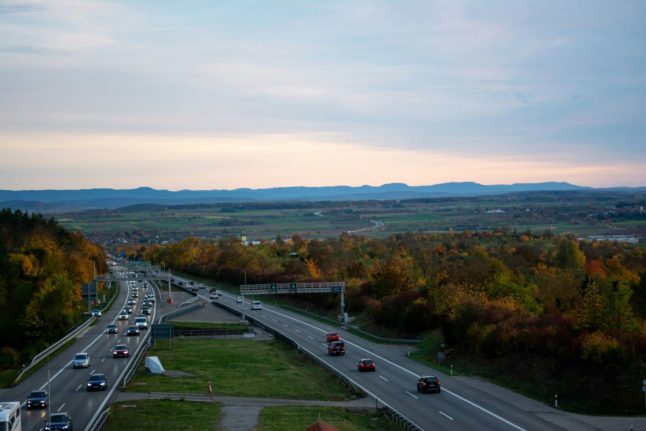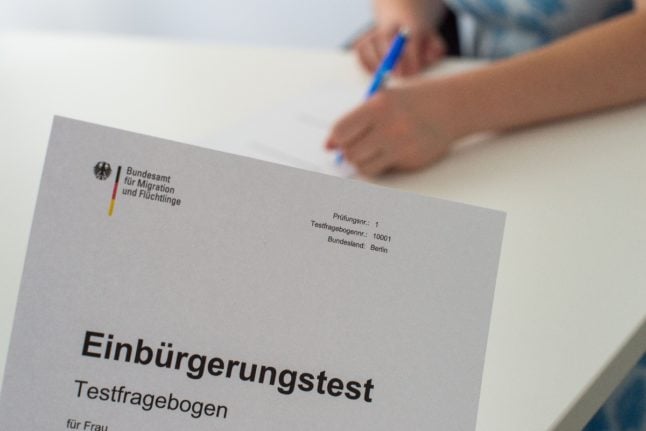Germany has seen a massive influx of refugees in recent years, due primarily to Russia’s war of aggression in Ukraine but also continued conflicts in parts of West Asia and Eastern Europe.
A recent story has highlighted the often dangerous routes and lengths that asylum seekers go to in their bid to come to Germany, as the government has tightened policies on asylum seekers.
On Sunday, two refugees hid under a bus travelling through Bavaria and were only discovered after one of them fell onto the A99 motorway in the district of Ebersberg (east of Munich).
A woman driving behind the bus was able to brake quick enough to avoid hitting the man.
Alerted by the driver behind, the bus stopped shortly afterwards at Vaterstetten where a second man then emerged from under the bus.
The police reported on Sunday that the men involved were only slightly injured from the incident. Both men were taken to hospital.
The two men are 26-year-old asylum seekers from Morocco.
It was unclear how long they had ridden under the bus or how exactly they managed to do so. But authorities suggested they must have positioned themselves near the exhaust system, because they were covered in soot.
How many asylum seekers come to Germany?
The story has shone a light on the often perilous situations asylum seekers coming to Germany find themselves in.
According to Germany’s statistical office (Destatis), at the end of 2022 more than 3 million people were registered as seeking asylum in the country – more than a million more than in 2021.
Of those, more than one million were Ukrainians. Additionally, the number of other foreign nationals seeking asylum amounted to more than two million for the first time.
The number of asylum seekers who are granted benefits, however, is substantially less. At the end of 2021, roughly 399,000 people in Germany received standard benefits in accordance with the Act on Benefits for Asylum Seekers (AsylbLG), according to Destatis.
For migrants coming from northern Africa, the route to Europe involves crossing the Mediterranean Sea, which is known to be among the deadliest border crossings in the world.
When these migrants succeed in landing in a European country they are legally required to apply for asylum at their point of entry. But asylum applications are known to take a long time, and come with requirements that some migrants are unable to prove.
Many people decide to head to their destination country without registering.
According to Bavarian government figures, in the first quarter of 2024 police detected more than 600 unauthorised entries or re-entries (people crossing the border illegally) at Bavaria’s state borders.
Immigration has become a heated political topic in Germany
According to the largest annual study on people’s perception of democracy (conducted by Alliance of Democracies), Germany has the highest proportion of voters who think focusing on reducing immigration should be politicians top priority, at 44 percent.
In response to these concerns, German leaders have initiated policy changes that appear to some like a reversal of the country’s previous willingness to accept asylum seekers.
One recent measure, passed by the Bundestag in April, will end cash benefits for asylum seekers in Germany and instead transfer these benefits to a card-based system. Lawmakers say the move is intended to prevent refugees from sending money out of the country, but critics contend that it will further disenfranchise people who are already in precarious situations.
READ ALSO: Why asylum seekers in Germany will soon have limited access to cash
In an interview with Der Spiegel in October 2023, Germany’s Chancellor Olaf Scholz said that the federal government is working hard to limit “irregular migration”. He cited a number of measures including stricter border controls.
That interview, which was printed with the headline “We have to deport people more often and faster”, came as a shock to advocates of asylum protections. It appeared to some that Scholz had reversed his position, perhaps in response to polls that suggested right-wing parties’ tough immigration policies were winning votes.
A foundational part of the traffic-light coalition government’s plan included a streamlining of Germany’s immigration process. Scholz had called Germany “an immigration country” while speaking about plans to overhaul the citizenship application process.
While Germany’s well-known lack of skilled workers has compelled leaders to streamline the immigration process for some, the country’s willing acceptance of refugee immigrants which was championed by former Chancellor Angela Merkel since 2015, seems to be running out.
READ ALSO: The Syrian refugee who became mayor of a German village





 Please whitelist us to continue reading.
Please whitelist us to continue reading.
Member comments